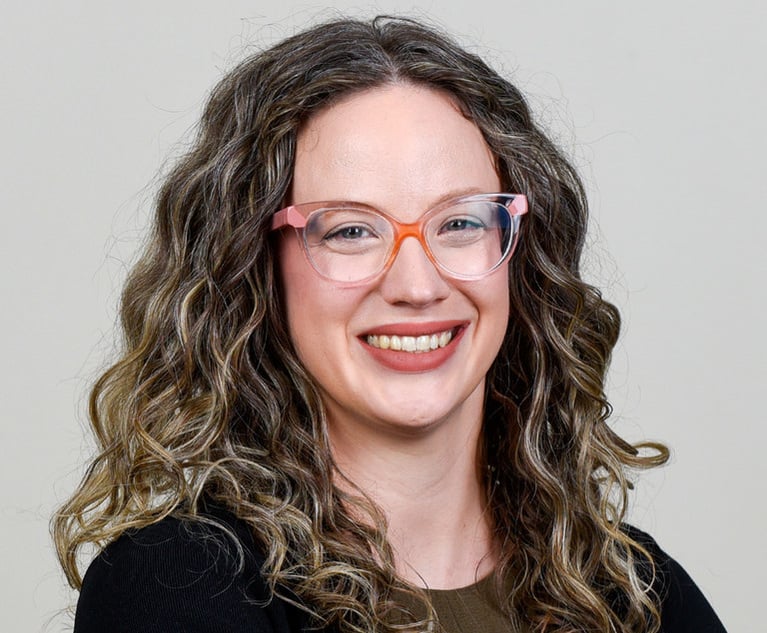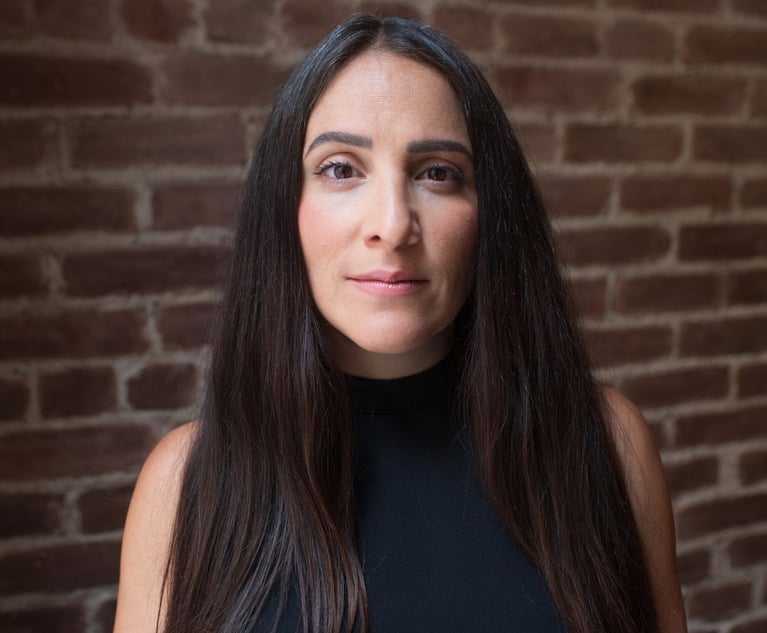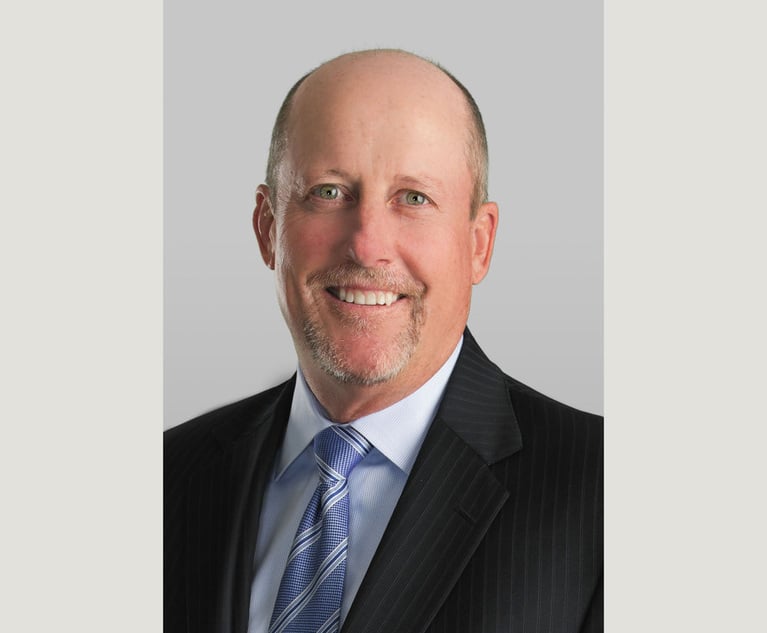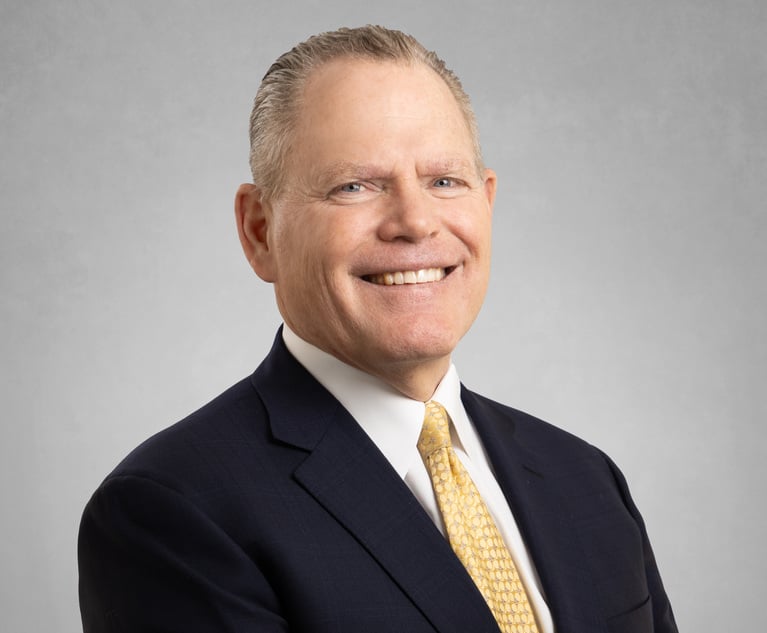Swedish Music Industry Views as European Union Countries Work on Drafting Home Laws for Enacting EU Copyright Directive
Part One of a Two-Part Article. This article examines the Copyright Directive and music-industry structure issues through the lens of Sweden, which has both a robust music business and a strong technology sector, two divergent perspectives in the development of the directive.
February 03, 2020 at 01:11 PM
16 minute read
This article appeared in Entertainment Law & Finance, your monthly source for real-world news and strategy from major players in entertainment, contract and intellectual property law — serious analysis of the issues and case law that affect your practice.
The European Union passed its new Copyright Directive in 2019. Within the mandate set out by the provisions of the directive, each EU member nation has two years to enact legislation for it in their own countries. This article examines the Copyright Directive and music-industry structure issues through the lens of Sweden, which has both a robust music business and a strong technology sector, two divergent perspectives in the development of the directive. Entertainment Law & Finance Editor-in-Chief Stan Soocher conducted the interviews that appear in this article, in Stockholm at the offices of the featured executives.
Alfons Karabuda is President of the European Composer and Songwriter Alliance (ECSA), President of SKAP — the Swedish Society of Songwriters, Composers & Authors — and a music composer. He also serves as President of the International Music Council and is a United Nations Human Rights Council expert on artists' and free speech rights. In addition, he is Chair of the Award Committee for the Polar Music Prize and a board member of STIM — the Swedish Performing Rights Society.
Q: What was the process like from your perspective for how the Copyright Directive was developed?
Karabuda: To me and the European Composer and Songwriter Alliance [ECSA], it was a long process, where talks in the beginning focused more on concerns with piracy and the dismantling of copyright. The copyright process was really put on hold then. During this time, ECSA worked on concerns over what we call "coercive contracts," mainly on behalf of our film and TV composers. We gathered evidence of coercive behavior [toward authors] by companies in 12 countries. This became something that the European Commission saw as one more example of why copyright wasn't working perfectly for everyone in the value chain. So we had some influence on the Copyright Directive process.
Q: Article 17 of the Copyright Directive includes "best efforts" language in the new burden placed on online platforms to pre-filter, for copyright concerns, content that is uploaded by users. Is the term "best efforts" satisfactory to you?
Karabuda: I'm trying to be positive because we have quite strong [tech] counterparts and it was never clear we would have an adopted directive. But no, "best efforts" isn't strong enough. It can be misinterpreted and it's an ongoing struggle nationally for EU countries in implementing the directive to not lose the reason why Article 17 was written. The EU Commission set up stakeholder meetings to discuss this as the priority. We're part of this, in getting a better description of what are "best efforts." But we realize that years have gone into it to reach a compromise that does strengthen author rights.
Q: For you, what are key points on the pre-filtering issue?
Karabuda: There are different ways of describing it. One is the tech view that the directive could break the Internet. It won't do that, it won't make it impossible for the online platforms to thrive. And there are interesting solutions that could remove some of the accounting problems for artists and copyright holders. If you register a copyright, you can have direct licenses with online platforms that pay you in cryptocurrency before a song is done streaming.
Q: In the United States, copyright "fair use" is an affirmative defense in an infringement lawsuit; a copyright holder files a lawsuit and the defendant may raise a fair use defense. But we've had case law that's held it's necessary for a copyright holder to do its own fair use analysis to show subjective good faith in sending a takedown notice to an Internet Service Provider. (See, Lenz v. Universal Music Corp., 801 F.3d 1126 (9th Cir. 2015).) This is prior to any litigation. Has there been an equivalent to this in Sweden?
Karabuda: No. How I've understood the [U.S. case law] is that putting the responsibility on authors could make them reluctant in asking for a takedown, as to whether "this will create a problem for me because I'm the weaker party if something is wrong in what I'm asking for here." So from what I understand, this case law could be something of an obstacle for rights holders in doing what they thought was the right thing regarding their rights. What we have tried to do in the Copyright Directive is to make sure that we do not put the authors in the position where they can't afford taking a claim to the right authorities to determine whether they are right or wrong, that there should be a cost-effective and easy way for rights holders to state their rights.
We have also something here that is not known as "copyright." In Sweden, we have not only what are called authors' rights, but a strong "moral right," which I think is very much connected in our cultures [i.e., to the idea of U.S. copyright fair use]. "How can I use your music?" and "How would that maybe be an abuse?" [Moral rights entitle authors to continuing authorship attribution and to the right to prevent alterations of works.] But it's important to look at this not just as a money issue because when it comes to having your say as an author, moral rights are really important. And it was an issue discussed during the work that ended up as this directive. Even if it's not that visible in the directive's paragraphs, it's a strong foundation.
Q: The U.S. Court of Appeals for the Ninth Circuit said in Lenz that rights holders could use computer algorithms for an up-front, fair-use analysis, but computers don't catch everything. On the Copyright Directive pre-filtering issue, were there discussions as to whether online platforms could use computer algorithms, and on what kind of software they could use to decide whether or not they should post content a user tries to uploads?
Karabuda: I don't see pre-filtering the same way as the platforms. What I heard several times from the platforms during the directive-drafting process were two different ways of looking at their own capabilities and how to handle algorithms. One was, they said meeting the pre-filtering requirement under the Copyright Directive would be too difficult and expensive. At the same time, the platforms said they had a system in place in which everything was working, that they didn't need new laws because the platforms were already in relationships with rights holders and could see what's on their sites.
But it's been divided within the tech industry. From new tech start-ups, not being in a dominant position, I heard they could take care of pre-filtering, while strong, established companies wanted to maintain their power. What the powerful tech companies said to legislators from the beginning was that "you don't have to interfere in this; we negotiate, we have everything in place." They did a lot of presentations for the legislators showing how well their systems function. But I didn't think we should write our laws based on what system a company was using.
Q: Content licensing practices were established before the new Copyright Directive. Collective music licenses are available, for example, from the Nordic countries [i.e., Sweden, Denmark, Finland, Iceland and Norway]. Please address licensing in light of the directive.
Karabuda: What would seem to be the biggest issue is if a platform doesn't have a license, so that they'd need to pre-filter basically everything. The idea is to have the licenses to make it possible to pay rights holders, to make sure an online platform doesn't have to be as scared of the pre-filtering obligation considering they'd have fewer songs online not under license.
Q: Do you think that online companies, when negotiating content licenses, are willing to include a definition of pre-filtering "best efforts"?
Karabuda: That's a reasonable way forward. Some of the criticism of the Copyright Directive has been because of a lack of understanding of its language. I think everyone needs to feel more secure. So I think, yes, of course, some clarity on "best efforts" is in everyone's interest. I'm not saying this just from the authors' perspective. I respect the tech companies being part of the value chain and giving tremendous value in getting the music out there.
Q: With the Copyright Directive approved by a majority of the EU nations, each member state got two years to enact it in their own country. How much leeway does each country have to do so?
Karabuda: First, I think the simplest way for a country that didn't vote for the directive would be to cite to the laws they already have and say these cover it all, there's no need to go further because "we are handling whatever is the intention of the directive." I've heard this from our counterparts, but I don't think this approach will work. What the directive says is quite strong. We're in a different position now. When getting the directive through, there were a lot of discussions about what proposed deviations meant and about things that didn't make it into the directive. Now it's matter of having the experts work on it. Some things might end up watered down in some EU countries. But I'm quite optimistic because it's quite clear that everyone needs to do this — and there's the two-year time frame.
Note that I'm in one of the countries that wasn't very positive about the directive [the Swedish government cast votes for and against the new directive during the legislative process] — though the government came through in the end, putting five of our most knowledgeable experts from the Ministry of Justice in Sweden at work full-time on getting this done. I also hear from our [artist's rights] representatives in other countries that the intention definitely is to get this done on time. I'm sure there will be obstacles, but what I hear is more a concern about matters in the directive that are not so clear, like "best efforts." Things may change, but no one wants to be the bad guy early in a process like this.
I really think the Copyright Directive came to a compromise that addressed the core of why we needed copyright modernization, at least from my perspective in representing so many of my colleagues in this. As authors, we are very pleased about how we got to this point.
*****
Stefan Lagrell is CEO of the Swedish Artists' and Musicians' Interest Organisation (SAMI). Martina Andersson is Head of Law and International Relation for SAMI. Both are long-time SAMI executives.
Q: What is SAMI's role in Sweden's music industry?
Lagrell: SAMI represents artists and background musicians mainly in "neighboring rights" issues [i.e., public performances monies earned from sound recordings]. We were founded in 1963. We're sort of a sister organization to the ones that represent authors and to the International Federal of the Phonographic Industry (IFPI) [which represents recording companies, including through IFPI Sweden]. We collect monies together with IFPI and share the revenues with them. Our collection is divided so that IFPI collects for broadcasting and we collect for the performance. SAMI represents both featured and non-featured artists.
Andersson: Our core business is to collect remuneration, including for the use of recorded music, from broadcasting, webcasting channels, in public venues like stores, bars and discotheques and so on. In representing each other's rights holders, SAMI and IFPI divide our collections 50/50, for further distribution by SAMI on behalf of the sound recording performers and by IFPI Sweden on behalf of the record producers. It's only for collection that the two organizations cooperate.
Lagrell: But we don't collect anything from streaming. How we do split the money we collect is based on a point system, depending on the contribution on the recording, it's not based on a percentage.
Q: How does a performers' role in the recording process determine the points on which a split is based?
Andersson: Under our point system, say you have a soloist together with a background musician; they each have a certain amount of points. If it's soloist or the main artist in a band, they have a higher number of points, say seven points for their contribution, while a session musician may have one point. One recording could be attributed more points based on the number of performers on the recording. However, you don't get paid for a certain recording. It's rather based on the total amount of what we collect. Then, here's the number of performers, each of them at the end of a year have a certain amount of points which is their share of the total amount collected. Germany uses a similar point system.
Lagrell: We're different from SoundExchange [in the United States]. What they do on the performers' side is to separate 5% for the background musicians and the rest is for the featured artist [and the sound recording owner for non-interactive digital transmissions]. We don't do it that way. We allocate the points, then split the revenue based on the number of points.
Q: What is your view on the European Union Copyright Directive's requirement that online companies pre-filter user content before posting it on the companies' websites?
Andersson: We have a different perspective when talking about this. We see it as part of the value gap [between the lower amount, if any, that artists receive from online uses of their creative efforts compared to what tech platforms earn]. We see it more as requiring the platforms to make sure they have the right licenses in place; we don't see it as a regulation of filters. In the Swedish market, we believe there are enough organized performers and authors to allow an easy way to license the content. That is the high level view because when it comes to performers, they have usually transferred their rights to the record producers [i.e., generally recording companies]. So for us, a good outcome of this directive regulation depends on whether we can guarantee our artists a fair remuneration from the money that could be realized as an outcome of this directive.
Q: That would make the "best efforts" language less vague because you'd have licensing terms that are specific.
Andersson: SAMI's main focus with the Copyright Directive has been on the remuneration right introduced in Article 18, because we are on the secondary-use side and not involved in primary negotiations. Music performers are outside licensing negotiations, for example, for Spotify, the most popular music streaming platform in Sweden. The performers' rights instead are licensed by the record producers. Of course, you have some performers who might have their own decent agreement on royalties from the streaming services, but many performers do not receive anything additional for streaming. So for us it's more about the establishing of a legal right to receive a guaranteed remuneration on top of what has been agreed in the primary relationship between the record companies and the streaming services.
Lagrell: That's why the focus on the Copyright Directive for us has been on Article 18, rather than the pre-filtering aspect. The latter is more for the rights holders, the record companies, maybe the unions to have an opinion about.
Andersson: In Sweden, the Swedish Performing Rights Society (STIM), on behalf of authors societies, are licensing to the online platforms because they have all the economic rights of the authors on hand. They can do this for publishers and for individual authors in relation to the platforms. As for the performers, it's the record companies that take care of this because the performers have already transferred there rights to them.
[Article 18 of the Copyright Directive states under "Principle of appropriate and proportionate remuneration": "1. Member States shall ensure that where authors and performers license or transfer their exclusive rights for the exploitation of their works or other subject matter, they are entitled to receive appropriate and proportionate remuneration. 2. In the implementation in national law of the principle set out in paragraph 1, Member States shall be free to use different mechanisms and take into account the principle of contractual freedom and a fair balance of rights and interests."]
Q: What are the plusses and the minuses you see in the final language of Article 18?
Andersson: It's too wide. The wording of the article itself leaves it pretty much to the market to decide in what way this proportionate remuneration should be negotiated for payment made by the online platforms to a collective management organization (CMO). From our perspective, considering the weak negotiating position most of the performers have in relation to the producers, we don't think this is good enough.
Lagrell: There was a "Fair Internet Campaign" while the European Union was working on the Copyright Directive. The performers' societies, performers' CMOs in Europe, campaigning for this remuneration right to get a more balanced situation between performers and producers.
Andersson: The campaign involved both audio and audiovisual performers. We are mainly focused on getting this guaranteed remuneration included in the Swedish legislation to enact the directive.
Q: Sweden is a key innovator of technology. Tech companies have a lot of clout with government officials in Sweden.
Lagrell: It's going to be tricky for us and for the Swedish legislators as well. From the political side, you'd want to stimulate further growth of the tech sector. But, on the other hand, you have a large sector in the culture and creative worlds in Sweden that are lobbying together.
Q: What impact do you see on the European Union creative industries from the UK's upcoming Brexit?
Andersson: Our British colleagues say it won't change anything, but from a formal point of view, I guess it will change because their obligations under the directive are no longer there. But it's a difficult question to answer, looking at it from the collective management side of it. Overall, though, I would say it's not going to change that much because the UK is still bound by the international [intellectual property] treaties, like the Rome Convention for performers that also forms the basis for exchange with countries outside the EU.
Editor's Note: This article was developed and conducted in part under grants from the U.S. Department of Education through its Centers for International Business Education and Research at the University of Colorado Denver. The article does not necessarily represent the policies of the U.S. Department of Education.
*****
Stan Soocher is Editor-in-Chief of Entertainment Law & Finance and Professor of Music & Entertainment Studies at the University of Colorado's Denver Campus. For more information: www.stansoocher.com.
This content has been archived. It is available through our partners, LexisNexis® and Bloomberg Law.
To view this content, please continue to their sites.
Not a Lexis Subscriber?
Subscribe Now
Not a Bloomberg Law Subscriber?
Subscribe Now
NOT FOR REPRINT
© 2025 ALM Global, LLC, All Rights Reserved. Request academic re-use from www.copyright.com. All other uses, submit a request to [email protected]. For more information visit Asset & Logo Licensing.
You Might Like
View All
How I Made Partner: 'Take Every Opportunity to Get Involved in the Business Side of the Firm,' Says Alyssa Domzal of Ballard Spahr

How I Made Practice Group Chair: 'Cultivating a Culture of Mutual Trust Is Essential,' Says Gina Piazza of Tarter Krinsky & Drogin

How I Made Managing Partner: 'Be the Uniting Voice of the Firm,' Says George Ogilvie of McDonald Carano

How I Made Managing Partner: 'Educate Yourself About Law Firm Economics,' Says Gregory Hessinger of Mitchell Silberberg
Trending Stories
- 1Rejuvenation of a Sharp Employer Non-Compete Tool: Delaware Supreme Court Reinvigorates the Employee Choice Doctrine
- 2Mastering Litigation in New York’s Commercial Division Part V, Leave It to the Experts: Expert Discovery in the New York Commercial Division
- 3GOP-Led SEC Tightens Control Over Enforcement Investigations, Lawyers Say
- 4Transgender Care Fight Targets More Adults as Georgia, Other States Weigh Laws
- 5Roundup Special Master's Report Recommends Lead Counsel Get $0 in Common Benefit Fees
Who Got The Work
J. Brugh Lower of Gibbons has entered an appearance for industrial equipment supplier Devco Corporation in a pending trademark infringement lawsuit. The suit, accusing the defendant of selling knock-off Graco products, was filed Dec. 18 in New Jersey District Court by Rivkin Radler on behalf of Graco Inc. and Graco Minnesota. The case, assigned to U.S. District Judge Zahid N. Quraishi, is 3:24-cv-11294, Graco Inc. et al v. Devco Corporation.
Who Got The Work
Rebecca Maller-Stein and Kent A. Yalowitz of Arnold & Porter Kaye Scholer have entered their appearances for Hanaco Venture Capital and its executives, Lior Prosor and David Frankel, in a pending securities lawsuit. The action, filed on Dec. 24 in New York Southern District Court by Zell, Aron & Co. on behalf of Goldeneye Advisors, accuses the defendants of negligently and fraudulently managing the plaintiff's $1 million investment. The case, assigned to U.S. District Judge Vernon S. Broderick, is 1:24-cv-09918, Goldeneye Advisors, LLC v. Hanaco Venture Capital, Ltd. et al.
Who Got The Work
Attorneys from A&O Shearman has stepped in as defense counsel for Toronto-Dominion Bank and other defendants in a pending securities class action. The suit, filed Dec. 11 in New York Southern District Court by Bleichmar Fonti & Auld, accuses the defendants of concealing the bank's 'pervasive' deficiencies in regards to its compliance with the Bank Secrecy Act and the quality of its anti-money laundering controls. The case, assigned to U.S. District Judge Arun Subramanian, is 1:24-cv-09445, Gonzalez v. The Toronto-Dominion Bank et al.
Who Got The Work
Crown Castle International, a Pennsylvania company providing shared communications infrastructure, has turned to Luke D. Wolf of Gordon Rees Scully Mansukhani to fend off a pending breach-of-contract lawsuit. The court action, filed Nov. 25 in Michigan Eastern District Court by Hooper Hathaway PC on behalf of The Town Residences LLC, accuses Crown Castle of failing to transfer approximately $30,000 in utility payments from T-Mobile in breach of a roof-top lease and assignment agreement. The case, assigned to U.S. District Judge Susan K. Declercq, is 2:24-cv-13131, The Town Residences LLC v. T-Mobile US, Inc. et al.
Who Got The Work
Wilfred P. Coronato and Daniel M. Schwartz of McCarter & English have stepped in as defense counsel to Electrolux Home Products Inc. in a pending product liability lawsuit. The court action, filed Nov. 26 in New York Eastern District Court by Poulos Lopiccolo PC and Nagel Rice LLP on behalf of David Stern, alleges that the defendant's refrigerators’ drawers and shelving repeatedly break and fall apart within months after purchase. The case, assigned to U.S. District Judge Joan M. Azrack, is 2:24-cv-08204, Stern v. Electrolux Home Products, Inc.
Featured Firms
Law Offices of Gary Martin Hays & Associates, P.C.
(470) 294-1674
Law Offices of Mark E. Salomone
(857) 444-6468
Smith & Hassler
(713) 739-1250








